HVAC systems are crucial components of hospitals as they play a significant role in ensuring a safe and healthy environment for patients, staff, and visitors. Maintaining proper temperature and humidity will always help control the spread of airborne diseases within health facilities.
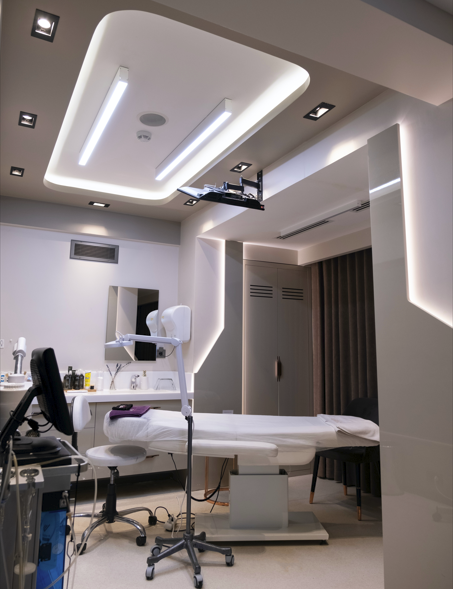
HVAC Systems for Healthcare
Here are some interesting areas of attention for HVAC systems in hospitals:
- Indoor Air Quality (IAQ) - Maintaining good IAQ is critical in hospitals as it can impact patient outcomes and staff productivity. HVAC systems need to ensure proper ventilation, filtration, and humidity control to prevent the spread of airborne infections and other contaminants.
- Airflow Management - Proper airflow management is essential to prevent cross-contamination between different areas of the hospital. HVAC systems must ensure that air flows from clean to contaminated areas and maintain negative pressure in isolation rooms to prevent the spread of infectious diseases.
- Energy Efficiency - Hospitals consume a significant amount of energy, and HVAC systems account for a large portion of that energy use. Implementing energy-efficient HVAC systems and controls can reduce energy consumption and operating costs without compromising indoor air quality.
- Noise Reduction - Hospitals can be noisy environments, and excessive noise can increase stress and disrupt patient recovery. HVAC systems must be designed to operate quietly and be located away from patient rooms and critical care areas.
- Infection Control - Hospitals are high-risk environments for infections, and HVAC systems play a critical role in preventing their spread. HVAC systems need to incorporate features such as UV lights, antimicrobial coatings, and advanced filtration systems to reduce the risk of infections and ensure the safety of patients and staff.
- Maintenance and Serviceability - Hospital HVAC systems must be designed for easy maintenance and serviceability to minimize downtime and disruptions to patient care. Regular maintenance and cleaning of HVAC systems are critical to ensure their proper operation and prevent the buildup of contaminants.
6 Best Thermostats for Hospitals/ Healthcare Facilities:
Selecting the best thermostat for a hospital depends on various factors, such as the HVAC system's complexity, the hospital's size, and the desired features. Here are some of the best thermostats for hospitals:
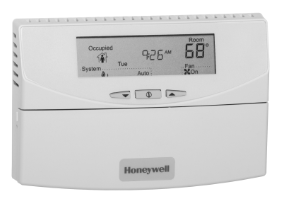
This is a programmable thermostat that is designed for commercial HVAC applications, including hospitals. It offers remote monitoring and control, can handle multiple zones, and has advanced scheduling features that can save energy while maintaining optimal comfort.
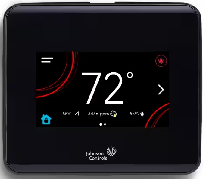
This smart thermostat is designed for commercial HVAC systems, including hospitals. It offers remote monitoring and control, advanced scheduling features, and can handle multiple zones. Includes several powerful new ventilation features that allow building operators to confidently safeguard their buildings’ occupants, by configuring air changes that help reduce the concentration of airborne infectious particles. It also offers advanced diagnostic tools that can help identify issues before they become problems.
3. Siemens RDS120 Series
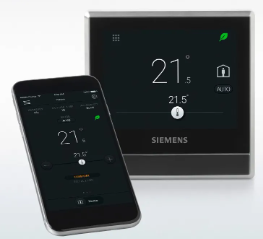
This is a digital thermostat that is designed for commercial HVAC systems, including hospitals. The RDS120 smart thermostat takes just a few minutes to commission and can be controlled via a mobile phone app. It offers remote monitoring and control, advanced scheduling features, and can handle multiple zones. It also offers customizable alerts and alarms to help identify issues and prevent downtime.
4. Venstar T8900 Commercial WiFi Thermostat
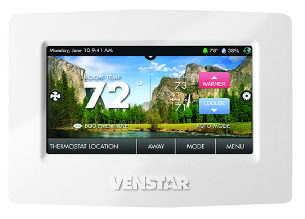
It offers 365-day holiday/vacation scheduling with up to 4 Heat and 2 Cool stages for gas, electric, or heat pump (dual fuel capable). It cnnects to the Wi-Fi router making it accessible from any PC or using the free Venstar smartphone apps: iOS, Android, and Blackberry OS10.
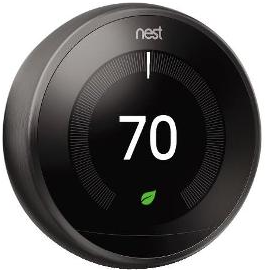
This is a smart thermostat that is designed for residential applications, but it can also be used in smaller hospitals. It offers remote monitoring and control, and advanced scheduling features, and can learn from user behavior to optimize comfort and energy savings. Connects to Wi-Fi to control the temperature from phone, tablet or laptop. No hub needed
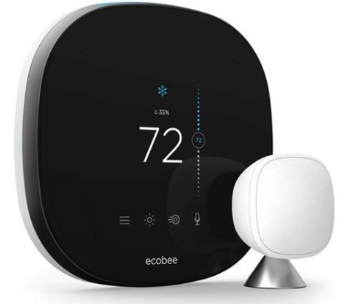
This smart thermostat is designed for residential and commercial applications, including hospitals. It offers remote monitoring and control, advanced scheduling features, and can handle multiple zones. It also provides advanced occupancy detection, which can save energy when rooms are unoccupied.
Table Comparing Specifications:
|
Thermostat
|
Remote Control |
Multiple Zones |
Advanced Scheduling |
Smart Features |
Energy Efficiency |
Diagnostic Tools |
Occupancy Detection |
|---|---|---|---|---|---|---|---|
|
|
Yes |
Yes |
Yes |
No |
Yes |
No |
No |
|
|
Yes |
Yes |
Yes |
Yes |
Yes |
Yes |
No |
|
|
Yes |
Yes |
Yes |
No |
Yes |
Yes |
No |
|
|
Yes | Yes | Yes | Yes | Yes | Yes | Yes |
|
|
Yes |
No |
Yes |
Yes |
Yes |
No |
Yes |
|
|
Yes |
Yes |
Yes |
Yes |
Yes |
No |
Yes |
Reach out to our HVAC specialists for all your HVAC related consultations here. Alternatively browse through our well updated catalog of products and find a part for your next installation.

